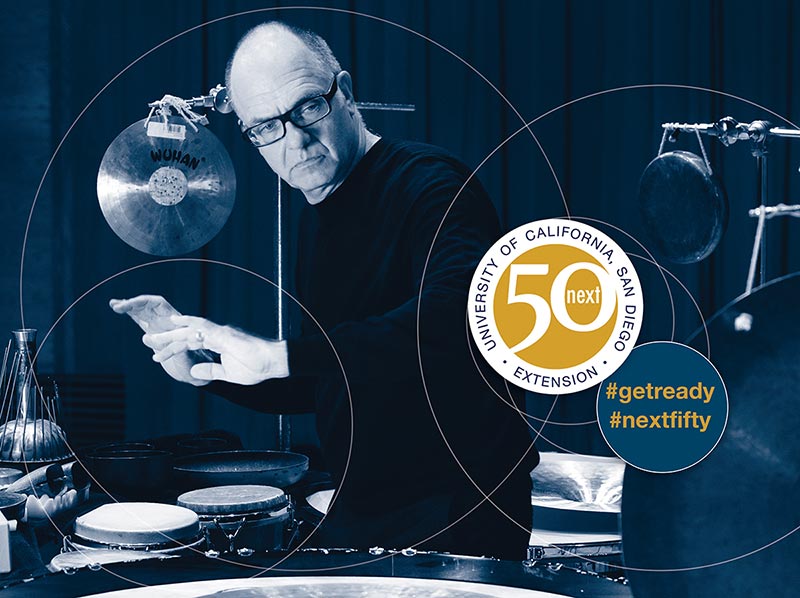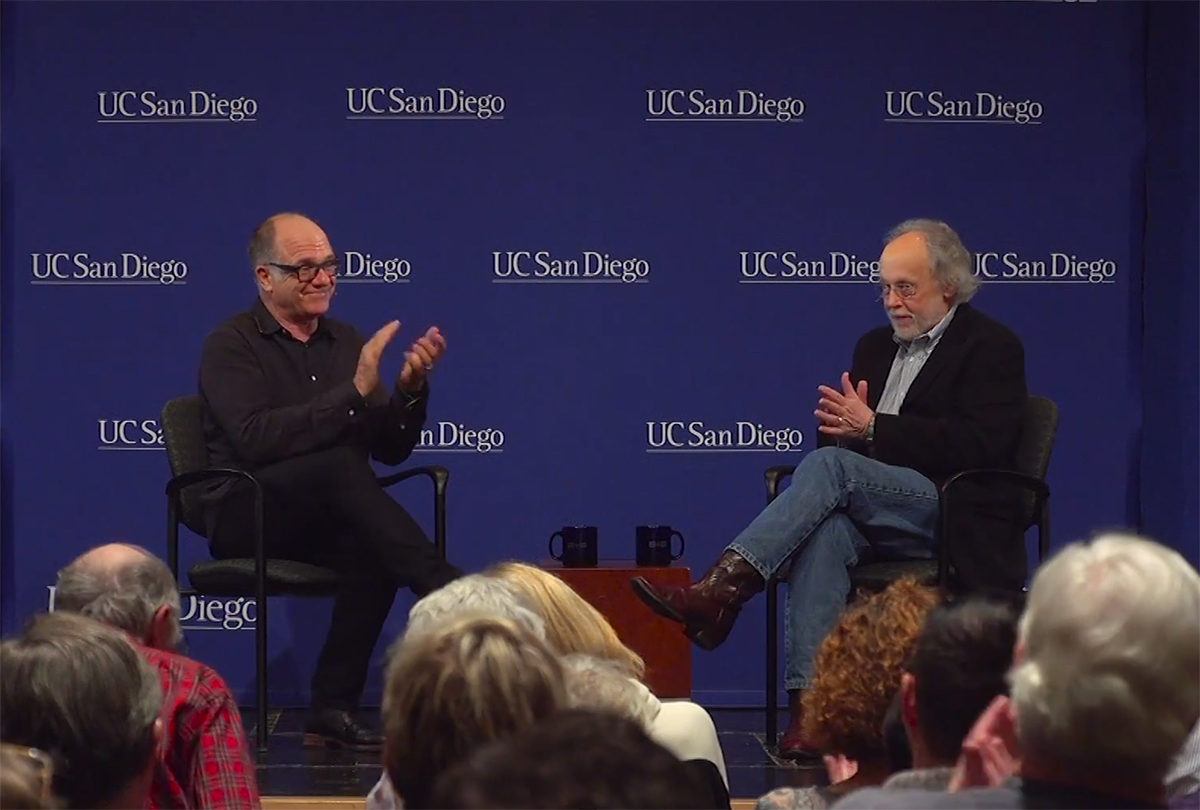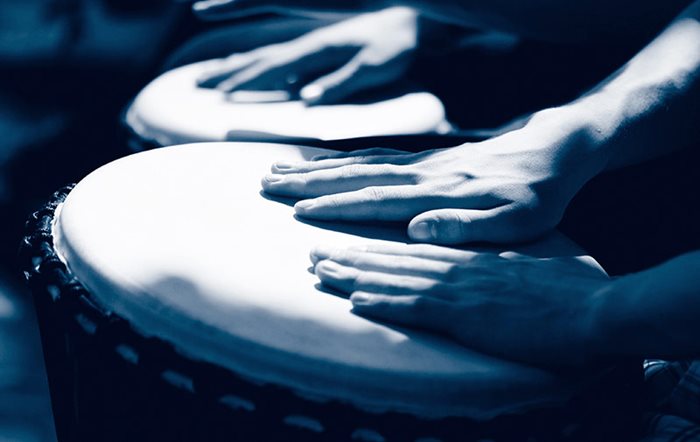16 February 2016
50 Voices of the Future: Steven Schick on making connections via music

In honor of UC San Diego Extension's first 50 years, 50 Voices of the Future asks thought leaders about the trends, breakthroughs and social advances they foresee over the next 50 years.
Not only does Steven Schick, distinguished professor of music at UC San Diego, march to the beat of his own drum, he also inspires students to find theirs. Schick holds the Reed Family Presidential Chair of Music and is the Music Director and Conductor of the La Jolla Symphony and Chorus. A percussionist and advocate for contemporary music, he makes connections between learning, creating, saving the environment and helping people hear their world. Those connections were on full display in recent event where he joined nationally recognized environmental writer Barry Lopez for a conversation about the intersection of art and environmental action.

Music professor Steven Schick demonstrates a primitive percussion form (clapping) as he introduces acclaimed writer Barry Lopez during a Helen Edison Lecture Series event.
You can watch the dialogue unfold with this UCTV presentation of the Helen Edison Lecture Series event.
(1) What is what you do important?
I’m a musician, teacher, conductor and percussionist. The most important thing I do is to teach. And I think the most important things in community situations also revolve around teaching. UC San Diego, for example, is a place where people can form their lives and become fully functional human beings. In my view, education lies at the root of every worthy thing we have in our culture. It’s a thrill to be a part of that.
(2) What are the influential/exciting developments happening in your field now, and why?
As a percussionist, I feel like a linguist in the land of new noises. And I think my job helps people understand more fully the noises of their lives. That helps us live in the present and not in the past. Likewise, my work with the La Jolla Symphony & Chorus. Everyone has an idea of an orchestra; it’s considered a conservative endeavor. But when you combine it with film, dance, contemporary music and composers who are still alive, it reaches across boundaries and the orchestra — this stuffy, conservative institution — becomes truly exciting again.
(3) What’s the next big thing?
I guess the really big thing is that we’re trying to figure out what sense art makes in this time and place. A big project for me was the concert I performed around the Reed Family Presidential Chair in Music. We performed “Des Canyons aux Etoiles" by the French composer Olivier Messiaen. The piece was inspired by his trip to Zion National Park, which makes it perfect for the 100th anniversary of the National Park Service this year. You hear bird calls, wind sounds and lots of beautiful music. It’s a great example of music that highlights the place and time in which we live.
(4) How big of an impact will your field play in shaping the future of the San Diego region and beyond?
The arts are immediately important. We look at art as an economic driver, a source of philanthropy, a momentary respite from everyday life, and a toehold on the future. As we think about what will outlive us on this fragile planet, I would suggest that it will be the art we have made.
(5) Hop into your time machine…what does the future look like for this field in 50 years?
Oh, this is a question I don’t have an answer for: I’m not doing my work so the world will look a certain way in 50 years. And, I honestly won’t mind being forgotten. I trust that there will be people who will do things I can’t even imagine: those people will include my current students, maybe a three-year-old playing somewhere on this rainy day, or maybe people not yet even born. I’m counting on those people. That’s why I teach — that’s how I touch the future.

Make your own music connections with related courses and certificates at UC San Diego Extension. Harness your creativity with additional programs in the Arts & Humanities.